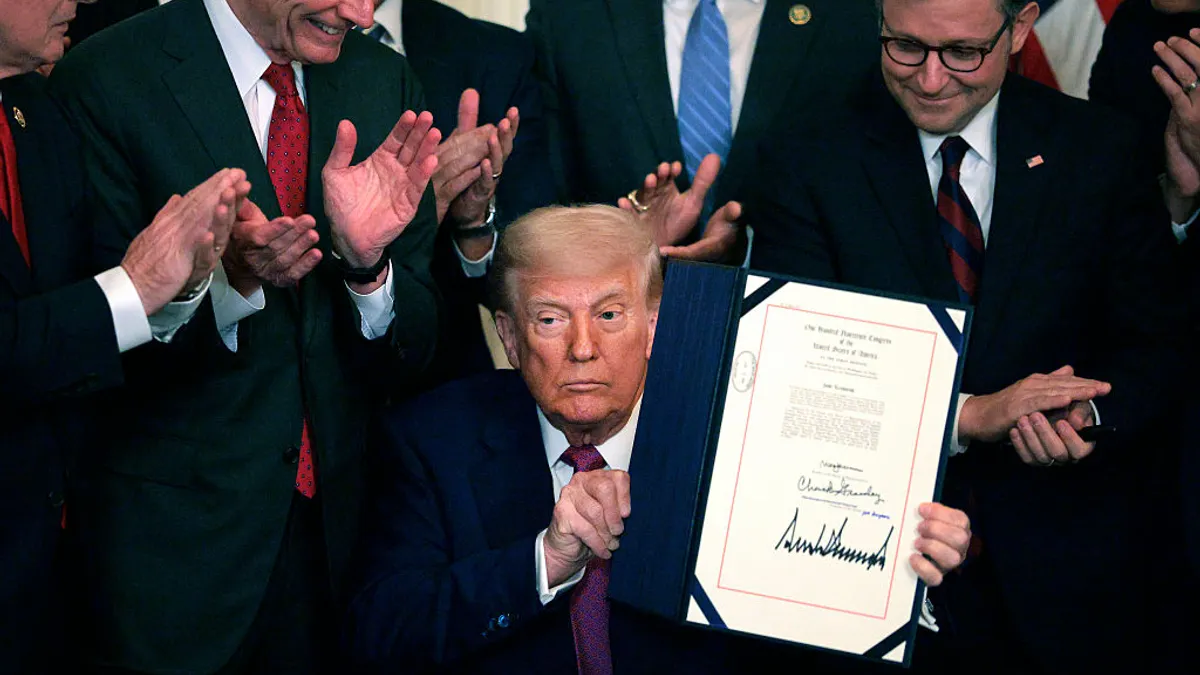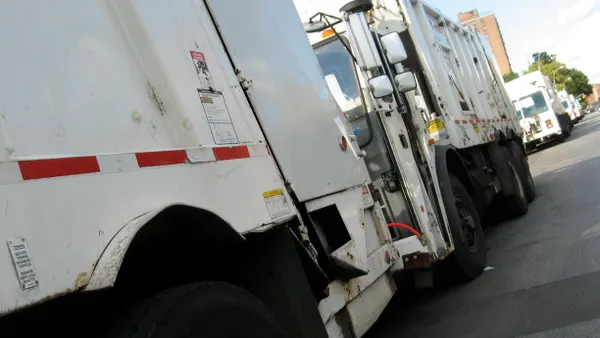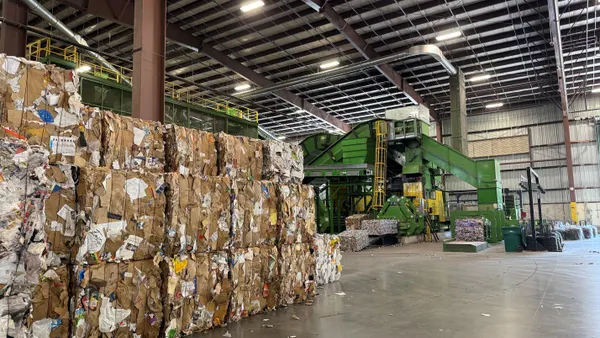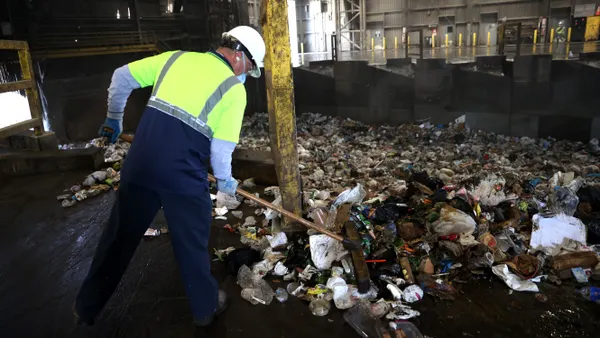President Donald Trump moved to sever California's EPA waivers by signing a series of joint resolutions Thursday, rolling back the Golden State's strict truck and auto emissions policies.
The president’s signing of joint resolutions under the Congressional Review Act reverses the Biden administration’s approval of California’s Advanced Clean Trucks rule. That earlier rule called for requiring 75% of Class 8 trucks sold in the state to be zero-emissions vehicles by 2035.
Another resolution also prevents the state’s low-nitrogen oxide (NOx) emissions rule for heavy-duty trucks from being implemented, per a statement by the president. The NOx rule intended to regulate emissions from manufacturers by cutting heavy-duty NOx emissions by 90% and overhaul engine testing procedures.
The Trump administration has described his predecessor's environmental policies as overreach and unjustified mandates. Trump said the congressional moves he signed further restrict California from implementing a similar policy in the future.
"Under the Congressional Review Act, the EPA cannot approve any future waivers that are 'substantially the same' as those disapproved in the joint resolutions," Trump said in a statement.
"Accordingly, the joint resolutions prohibit the EPA from approving future waivers for California that would impose California’s policy goals across the entire country and violate fundamental constitutional principles of federalism, ending the electric vehicle mandate for good," the statement said.
In response, California Gov. Gavin Newsom declared the federal measures illegal and moved to sue the federal government, seeking to pursue the state's zero-emission vehicle policy. Newsom signed an executive order on Thursday for the state to continue regulation requiring that 100% of sales of new vehicles be zero emission by 2035 for cars, pickup trucks and drayage trucks and by 2045 for medium- and heavy-duty trucks.
Trucking leaders applauded Trump for the measures. The Owner-Operator Independent Drivers Association said the news was a big win for both men and women behind the wheel.
“Our 150,000 small-business members have been saying it all along—electric trucks just aren’t a realistic option right now. They’re too expensive, the charging infrastructure isn’t there,” OOIDA President Todd Spencer said in an emailed press release to Trucking Dive.
Industry advocates, including the American Trucking Associations and the Washington Trucking Associations, also warned that electric truck technology and charging infrastructure were not caught up to accommodate California's ambitious EV policies.
“We’ve done our part to reduce carbon emissions while keeping America's economy moving,” ATA President and CEO Chris Spear said in a press release. “But what we need is federal leadership to set realistic and achievable national emissions standards. And today brings us one step closer toward that goal,” he added.
Werner Enterprises truck driver Gina Jones shared a similar sentiment, speaking as part of the signing ceremony at the White House.
“We cannot allow one state’s regulations to disrupt our entire nation’s supply chain,” Jones said. “Allowing California to do so would have [negatively] impacted the hundreds of thousands of truck drivers who deliver critical goods across the country each and every day.”














